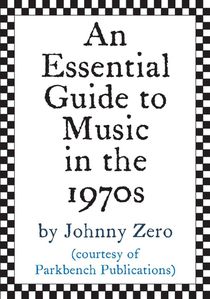http://www.amazon.co.uk/Pop-Revolution-Transatlantic-Music-Scene/dp/0956272533

Highway 61 Revisited by Bob Dylan
;
peaked in the UK charts at No.4;
peaked in the US charts at No.3
produced by Bob Johnston
released in August
This new offering from Mr Zimmerman was something of a watershed in a number of respects. Not only was Dylan
incurring the wrath of Luddite folk music devotees by plugging his new tunes into electric sockets, but here arguably for the first time was an album of substance, carefully constructed, and thus historically it represented a new departure from the previous formula of artists hastily compiling a dozen filler material to complement the one or two 'quality' singles that featured on any given long player. 'Highway 61 Revisited', it can be claimed, heralds the dawning of a new genre: folk rock.
No longer was Dylan and other folksters merely strumming protest songs on acoustic guitar, accompanied possibly by harmonica. Now folk music was, horror of horrors, selling its soul (in the eyes of some zealots) and embracing modern technology. Electric guitars, bass guitar, drums, and keyboards were all drafted in to complement the bard of the folk scene. A defiant Dylan merely responded to being called a "Judas" in mid-concert in Manchester by exhorting his group to "play f***ing louder" on their rendition of 'Like A Rolling Stone'.
Seminal track is an often overused description in popular music tomes, but scarcely a soul anywhere questions its
suitability in relation to Dylan's six-minute album opener which, unlike the other ten songs, was actually produced by
Tom Wilson. Such indeed is the enduring appeal of 'Like A Rolling Stone' that music critic Greil Marcus was sufficiently
moved to compose a whole publication on this one song.
'Ballad Of A Thin Man' follows a similar theme as the sixties' leading songwriter sings once more of alienation and of
being the outsider on the periphery, looking inside at the American dream. This was Generation X material, twenty years
ahead of its time. Brian Jones, himself an increasingly peripheral figure in the Rolling Stones, was convinced that these two tracks in particular were a commentary on his state of mind. "How's your paranoia meter?", Dylan once famously
asked Mr Jones. Was it pure coincidence that 'Ballad Of A Thin Man' contains the lyric "Something is happening here and you don't know what it is/Do you, Mr Jones?" A credible case can be made that the subsequent 'Blonde On Blonde' project contains better songs, but Highway 61 Revisited is less patchy, in spite of the presence of the lengthy 'Desolation Row'. For the uninitiated, 'From A Buick 6', 'It Takes A Lot To Laugh, It Takes A Train To Cry', and 'Queen Jane Approximately' are gems waiting to be unearthed. Bob Dylan was emphatically laying down a marker that he was the leading spokesperson for the new generation that viewed the Establishment with disdain and suspicion. Dylan remained an enigma thereafter, allowing his constant flow of product to speak on his behalf. The quality of his output may have varied through time, but Dylan's status as the main man of the 1960s' music scene was cemented by
this LP.
The album's best song? Like
A Rolling Stone
SPORT IN 1965
English Division One soccer champions: Manchester United
English FA Cup final: Liverpool 2 Leeds United 1
English League Cup winners: Chelsea
Scottish Division One soccer champions: Kilmarnock
Scottish FA Cup final: Glasgow Celtic 3 Dunfermline Athletic 2
Scottish League Cup winners: Glasgow Celtic
Irish League soccer champions: Derry City; Irish Cup winners: Coleraine
League Of Ireland soccer champions: Drumcondra; cup winners: Shamrock Rovers
European Cup final: Inter Milan 1 Benfica 0
European CupWinners' Cup final: West Ham United 2 Munich 1860 0
European Fairs' Cup final: Ferencvaros 1 Juventus 0
English county cricket champions: Worcestershire
Five Nations' rugby union champions: Wales (triple crown)
Formula One world drivers' champion: Jim Clark
Gaelic football All-Ireland champions: Galway; hurling champions: Tipperary
British Open golf champion: Peter Thomson
US Masters golf champion: Jack Nicklaus
US Open golf champion: Gary Player
USPGA golf champion: Dave Marr
Rugby league Challenge Cup final: Wigan 20 Hunslet 16
Wimbledon men's singles tennis champion: Roy Emerson
Wimbledon ladies' singles tennis champion: Margaret Smith
The Aintree Grand National steeplechase winner: Jay Trump
The Epsom Derby winner: Sea Bird II
The Ryder Cup: Great Britain & Ireland 12.5 USA 19.5






/image%2F1384326%2F20201125%2Fob_a1d450_15-20-56-aoh14gjlgqdpoqhcjkihtl4vn7ccu.jpg)